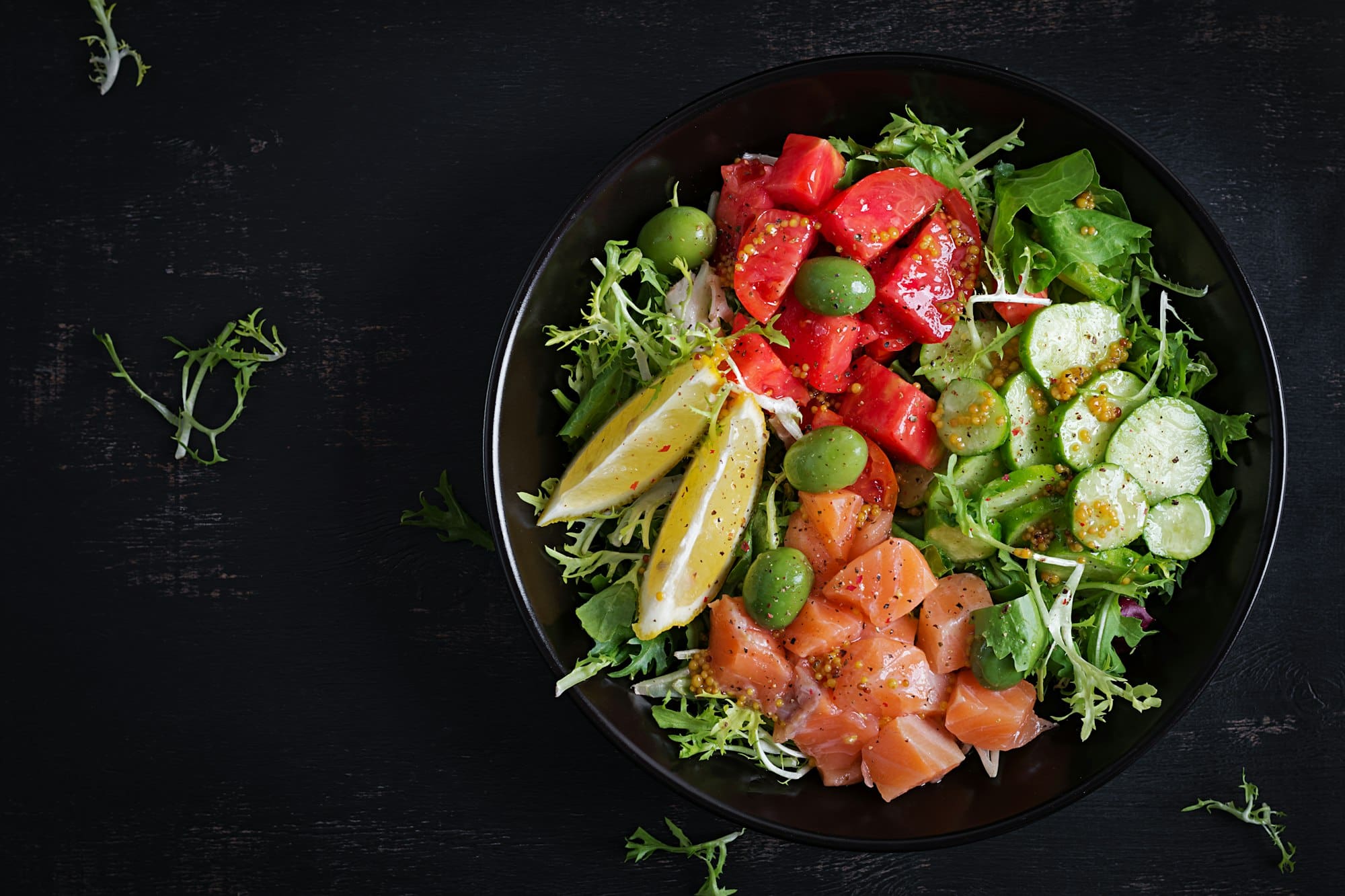


Improving your diet doesn’t have to feel like a punishment. In fact, small changes can lead to significant improvements in your health and well-being without the sense of deprivation that often comes with restrictive diets. The key is to focus on balance and sustainable habits.
As nutritionist Michael Pollan wisely said:
“Eat food. Not too much. Mostly plants.”
This holistic approach encourages variety and mindfulness without the need for drastic measures. By making thoughtful choices, you can enjoy delicious meals and snacks while nourishing your body. Ready to transform your eating habits? Let’s explore how to do it effortlessly and joyfully!
Understanding the psychology of eating is crucial to making sustainable changes to your diet. Often, our eating habits are influenced by emotions, stress, and even societal norms rather than hunger. By recognizing why we eat the way we do, you can start to make mindful choices that align with your health goals.

Emotional Eating: It’s common to reach for comfort foods in times of stress, sadness, or even boredom. These foods often give a temporary sense of relief but can lead to feelings of guilt or regret later.
Identifying your triggers for emotional eating is the first step in addressing them. Keep a food diary to track not just what you eat but also how you feel when you eat it. This awareness can help you develop healthier coping mechanisms, like taking a walk or practicing deep-breathing exercises.
Situational Eating: Social settings often encourage overeating or eating foods you wouldn’t normally choose. Parties, family gatherings, and even office meetings can test your self-control.
Plan ahead by eating a small, healthy snack before social events and make conscious choices once you’re there. It’s perfectly okay to enjoy treats occasionally, but being mindful will help you avoid overindulging.
Mindful Eating: This practice involves paying full attention to the experience of eating and drinking, both inside and outside the body. Notice the colors, smells, textures, flavors, temperatures, and even the sounds (crunch!) of your food.
Chew slowly and take pleasure in every bite. This not only enhances your enjoyment but also allows your body time to signal when it’s full, helping you to avoid overeating.
By understanding the psychological aspects of eating, you can make more informed and conscious decisions, leading to healthier habits that last a lifetime. Remember, it’s not just about what you eat but also why you eat.
Setting up a balanced meal plan can seem daunting, but it doesn’t have to be complicated. The key is to aim for variety, ensuring you get a mix of different nutrients without feeling deprived.
By incorporating a range of foods from each food group and paying attention to portion sizes, you can build a meal plan that supports your health while still enjoying your favorite foods. Remember, balance is about creating sustainable habits, not about perfection.

Small changes in your daily meals can make a significant difference. By substituting certain ingredients or foods with healthier alternatives, you can still enjoy your favorite dishes while boosting your nutritional intake.
Ready to get started? Let’s dive into some simple swaps that can help build a healthier plate without compromising on taste.
Our bodies are incredibly intuitive when it comes to hunger and fullness. However, modern lifestyles and complex eating habits have often dulled our ability to listen to these cues. Understanding and responding to what your body is telling you can foster a healthier relationship with food and prevent overeating.
First, learn to differentiate between physical hunger and emotional hunger. Physical hunger builds gradually, is open to various food options, and is satisfied once you’ve eaten enough.
Emotional hunger, on the other hand, comes suddenly and often craves specific comfort foods. It’s your body’s way of coping with stress, boredom, or other emotions.
One way to better tune in to your body’s signals is by practicing mindful eating. This involves eating slowly, savoring each bite, and paying full attention to the food in front of you.
Try putting your fork down between bites or eating without distractions like TV or your phone. This helps you recognize when you’re truly hungry or already full.
Another practical tip is to keep a food journal. Note what you eat, how much, when, and importantly, why you’re eating. Are you genuinely hungry, or are you responding to emotional triggers? Over time, patterns will emerge, making it easier to adjust habits and make more conscious choices.
Lastly, hydration plays a key role. Sometimes, we mistake thirst for hunger. Try drinking a glass of water and waiting a few minutes to see if your hunger subsides.
By paying attention to and respecting your body’s natural cues, you can enjoy your meals more and enhance your overall well-being without the sense of deprivation.

Changing your diet can feel daunting, especially if you dread giving up your favorite treats. But the truth is, a healthier diet doesn’t have to be synonymous with deprivation.
By making small, smart changes in your daily eating habits, you can improve your health without sacrificing the foods you love. Let’s start this journey towards a more balanced and fulfilling way of eating!

Achieving a healthier diet doesn’t mean you have to give up your favorite foods or feel guilty when enjoying a treat. It’s all about making smarter choices that improve your overall well-being while still satisfying your cravings.
With a few easy tweaks and fresh perspectives, you can nourish your body without sacrificing the pleasure of eating.
Your diet has a significant impact on your overall well-being, but improving it doesn’t have to mean sacrificing the foods you love.
By making small, mindful changes, you can revamp your meal plan and enhance your health without feeling restricted. Here’s how you can take simple steps to eat better while still enjoying your favorite dishes.

One of the best ways to eat healthier without feeling deprived is to focus on adding more variety and flavor to your meals. Instead of thinking about what you can’t have, consider the colorful array of fruits and vegetables you can include.
Try adding berries to your morning yogurt, mixing different vegetables into your salads, or snacking on carrot sticks with hummus. This not only increases your nutrient intake but also keeps your taste buds excited.
Moreover, paying attention to portion sizes can make a significant difference. You don’t have to eliminate your favorite foods; simply enjoy them in moderation. This approach allows you to savor a piece of chocolate after dinner or have a slice of pizza on a Friday night without feeling guilt.
Another key strategy is to experiment with cooking methods and spices. Preparing meals at home gives you control over the ingredients and portion sizes, and using herbs and spices can make even the simplest dishes burst with flavor.
Absolutely! Making healthy eating enjoyable starts with variety and creativity. Incorporate vibrant colors into your meals by adding a rainbow of fruits and vegetables.
For example, toss in some bell peppers, cherry tomatoes, and spinach leaves into your salads. You can also experiment with different cooking methods like grilling, roasting, or pan-frying to bring out new flavors.
Another tip is to make small, tasty swaps. Replace your usual pasta with a hearty salad or use whole grain alternatives. Adding berries to your breakfast can sweeten your morning routine without the extra sugar.
When it comes to snacking, opt for veggies dipped in hummus or a bit of peanut butter. These changes can help satisfy your cravings while keeping your diet balanced.
Above all, focus on how you feel after eating. Choose foods that leave you feeling energized and satisfied. This way, you’re more likely to look forward to your meals, making healthy eating a natural and enjoyable part of your lifestyle!
Absolutely! Improving your diet doesn’t mean you have to abandon your favorite foods. The key lies in moderation and smart swaps.
For instance, if you love pasta, consider switching to whole grain versions or trying pasta made from legumes for added nutrients. Love dessert? Enjoy fruit-based treats or try baking with healthier ingredients like almond flour and natural sweeteners.
The goal is to enhance your diet by making better choices that don’t feel like sacrifices but rather new, enjoyable habits.
Absolutely! Revamping your diet doesn’t mean you have to adopt a restrictive, joyless eating plan. Instead, it’s about making small, sustainable changes that you can enjoy.
Start by incorporating more vibrant fruits and vegetables into your meals. For instance, add a handful of berries to your breakfast or snack on sliced peppers with hummus. These simple additions can elevate your diet without making you feel like you’re missing out.
Additionally, consider swapping out ingredients rather than eliminating them. Use whole-grain bread instead of white, choose lean proteins like fish and legumes over processed meats, and replace sugary drinks with water flavored with fresh citrus or herbs.
These modifications can drastically improve your health while still allowing you to savor your favorite foods.
The goal is to make eating well a part of your lifestyle, not a temporary fix. Focus on how these changes make you feel over time—more energized, satisfied, and nourished. By embracing this approach, you’ll find that improving your diet can be a delightful, guilt-free journey.
Absolutely! Improving your diet can be as simple as making small, manageable changes that fit into your lifestyle. Start by gradually incorporating more fruits and vegetables into your meals.
You don’t need to make drastic changes overnight. For example, add berries to your breakfast or snack on carrot sticks with hummus. Over time, these minor adjustments can lead to significant improvements in your overall diet without the feeling of being restricted.
Another method is to focus on balance rather than elimination. Instead of cutting out your favorite foods, try to balance them with healthier options.
Enjoy that slice of pizza, but maybe pair it with a side salad or some steamed vegetables. This way, you can still enjoy the foods you love while increasing your nutrient intake and feeling satisfied.
Additionally, opting for fresh, minimally processed ingredients can make a huge difference. Preparing meals at home allows you to control what goes into your food, making it easier to create healthier, delicious dishes.
Lastly, listen to your body and eat according to your hunger cues. This practice, known as intuitive eating, encourages you to trust your internal signals about when and what to eat, reducing the likelihood of overeating or feeling deprived.
Improving your diet doesn’t have to mean giving up the foods you love or feeling deprived. By making small yet sustainable changes, you can create a balanced and nourishing meal plan that satisfies both your nutritional needs and your taste buds.
Remember, the goal is to enjoy the journey of eating well, not to see it as a restrictive or punishing regimen.
Focus on adding more fruits and vegetables, making water your drink of choice, and opting for fresh, minimally processed foods. By listening to your body’s hunger cues and making thoughtful food choices, you can improve your diet and overall health without guilt or sacrifice.
Embrace these strategies with an open mind and discover how enjoyable and rewarding healthy eating can truly be.
Ultimately, the best diet is one that you can maintain in the long run and that brings you happiness and well-being. Feel empowered to make these positive changes at your own pace, and celebrate each step forward in your journey towards better health.









